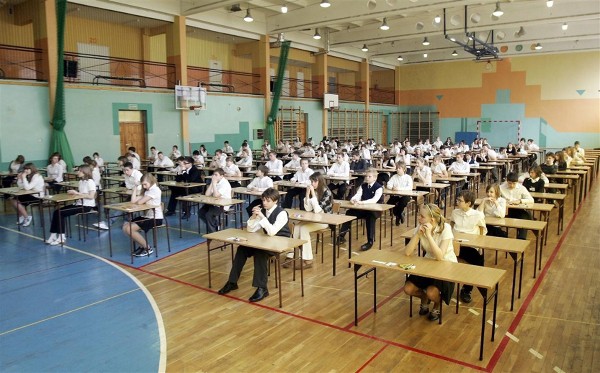Primary school
Public primary schools are subject to regionalization, which means that the school must accept all children residing in the area it is competent for, namely the surrounding area (in the case of small towns the school catchment area can be an entire town or even several of them, while in large cities it may be just a dozen or so streets). The child may also, at the request of the parents, attend a school other than the one indicated by his place of residence (also known as the district school) - then the decision on the child’s acceptance rests with the headmaster of the school.
Primary education comprises 6 years and is divided into two stages. In forms I-III children learn in a so-called integrated learning environment. There is no clear division into subjects such as Polish, mathematics, science, etc. Most of the subjects are taught by one teacher, who is also the form master. Only specialized subjects (foreign languages, physical education - sports, arts subjects) may be taught by another teacher / teachers. From year I, the curriculum includes learning a foreign language - in about 80% of the schools it is English, in the rest it is German or Russian, mostly in border areas. Children will have to continue learning this language gymnasium together with English, which is compulsory for all gymnasium students. If a child learns English from grade I, they take up another foreign language once they start gymnasium/lower secondary school.
Children from forms I-III are also provided with free care services in the school club-room, usually from 7.00am to 5.00 or 6.00pm. During that time both free and paid extramural activities are held, and in many schools the children can also do their homework with assistance from one of the school club-room teachers.
In forms IV-VI the curriculum is already divided into subjects, taught by different teachers, one of which is also the form master, which means he or she is specifically responsible for educational matters. In some schools, a second foreign language is added to the curriculum – this varies depending on the school. It is mostly German, less often French or Russian. Other languages are rare.
Children in these forms may use the club-room only in exceptional cases.
All students can benefit from school lunches in the school cafeteria, which are paid on a monthly basis in advance (the money for the time the child is absent is refunded provided information about the absence is provided to the school administration).
During their primary school education, the children sit a nationwide examination in the form of a written test at the end of form VI. It takes place usually in April, on the same day and at the same time in across Poland. In some schools students also sit the national proficiency test at the end of form III. However, this test is not mandatory, but remains voluntary, and parents must agree for their child to participate in it. Participation in the form III proficiency test and the results obtained do not affect the further course of the child’s education, and serve only information purposes.

VI form examination
Although the score received on the VI form examination also has no impact on whether the child completes primary school, it can be taken into account during admission to the next schooling stage, which is gymnasium. The test assesses reading, writing, reasoning skills, use of information sources and use of knowledge in practice.
Sitting the examination is mandatory and a precondition for the completion of primary school. For children who could not sit the test at the normal time due to, for example, illness, a special exam date is set. If the child is unable to sit the examination during this second additional test date as well, he must repeat VI form and retake the exam the following year.
Exemption from the obligation to sit the exam in question is granted to the winners of knowledge contests at the regional or national level for one or a group of subjects covered by the test. Other students may be exempted only for health reasons or due to circumstances beyond their control. The application for exemption should be submitted to the Director of the Regional Examination Commission (OKE) by the school headmaster. According to some experts, insufficient knowledge of Polish by a foreign child newly-arrived in Poland constitutes such a factor, but others disagree with this interpretation. In each particular case the decision rests with the Regional Examination Commission.
Foreign children starting school in Poland from VI form are therefore in a particularly difficult situation because of the need to sit the above test in the Polish language under the same rules as their Polish colleagues. Unfortunately, they often do not have enough time to sufficiently master the Polish language and curriculum differences between the subjects taught in their country of origin and in Poland to achieve a good result during the examination.
This problem is usually not applicable to foreign children who have been attending a Polish school for several years.
